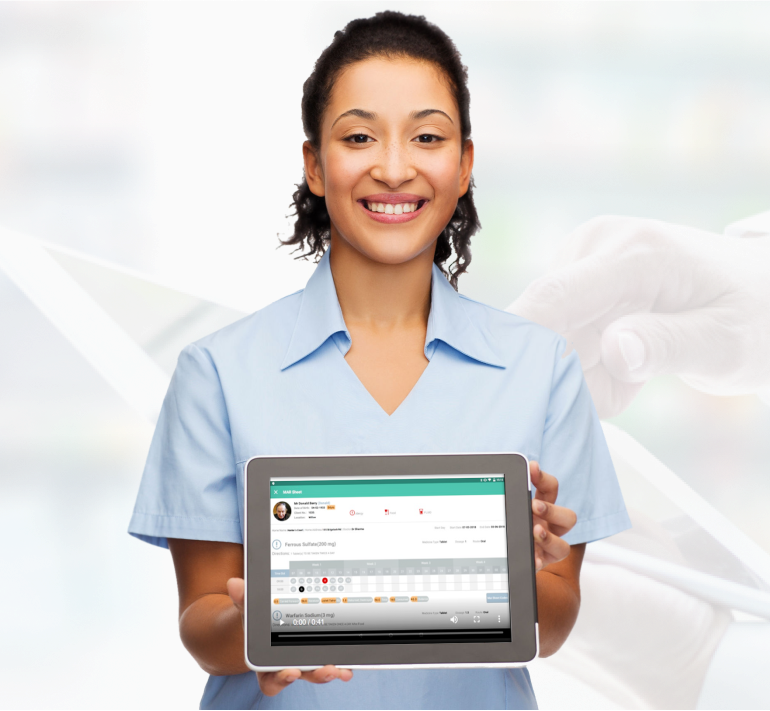One of the most important aspects of nursing care is managing medication in a care home. This involves ensuring that residents’ medications are administered correctly and the details are recorded accurately. Looking after medical conditions and keeping symptoms under control is essential to enable residents to enjoy as comfortable a life as possible and as robust health as their individual circumstances will allow. Handling medication in a care home for multiple residents who all need different medicines in different dosages and at different times during the day is, however, not straightforward.
Medication Policies and Procedures
Care homes must have a written policy and procedure in place that lays out procedures for administration of medicines. This is required by law. A care home medication policy should include information about how the staff obtain, store, administer, dispose of medication and managing medicines in care. Other key areas to highlight in the policy include what to do in the case of a medication error happening and how residents self-administer their medication if it is appropriate for them to do so. Medication in a Care Home should also document how they handle related nursing care delegate tasks such as PEG feeding, nutritional supplements, allergies etc.

Keeping medication tracking records is a statutory requirement for all care homes and they must be signed and dated each time a medicine is administered. Details of all staff authorised to dispense medicines should also be listed. Records should also include details of employees’ approved initials. This is so that they can be matched to the signed daily charts in the case of a query or inspection.
Moving From a MAR to an EMar
All this record-keeping and paperwork can be made much easier by using care home management software. A good package will offer a comprehensive medication tracking function. The digital records that are generated take the place of the paper Medicine Administration Record, or MAR. Medication in a care home with software enables you to keep accurate digital records of who has taken what medication and how the relevant policy or policies apply to each resident. It provides you with a form of electronic MAR, or eMAR.

Updates can be added quickly and easily. Although the details are stored securely, they can be made accessible to those who need to see them. This could include regular care staff, as well as the resident’s GP, consultant or other specialist involved in their medical care. Comprehensive digital medication tracking records also enable a care home to provide detailed information to the Care Quality Commission, patients’ families and any other authorities that need to see them at short notice.
EMAR Advantages
Moving to a digital system for managing medication in a care home offers more advantages alongside easy data entry and retrieval. The software can be customised to make the system work precisely as you need it to. You can do this by adding or removing fields as preferred, as well as creating sections for more detailed notes or changes to medication regimes. You can also produce customised reports for briefings and analysis.

Medication tracking information can be linked to other aspects of the overall care management system too. For example, if a visiting doctor changes a resident’s medication regime, this can be updated ASAP in the medication tracking section. The information can then be cross referenced with details of the doctor’s visit and their full recommendations.
Managing medications digitally can help care homes stay up to date with Health and Social Care Act compliance. The process offers peace of mind to staff, residents and family members, since all information is recorded in one place and in real time. Finally, it can save a lot of time previously spent updating paper charts, carrying out filing and checking details.
Managing Medication in a Care Home
As well as switching to a digital medication tracking system, there are other ways in which a care home can improve its medication procedures. Ensuring a robust safeguarding policy is in place to protect residents is especially important. Not only does this keep them safe within the home, but it can help prevent errors happening with wrong medicines, dosages or timings. Pay careful attention when ordering residents’ medications. Check amounts, use-by dates and strengths to make sure that you have got the right versions.
Make sure residents are aware of any possible side effects, or have access to details on paper or online. Also check that they are able to take the medicine properly. For example, if they require an inhaler, can they use it effectively? Does anyone have trouble swallowing tablets? Always watch residents as they receive their medications to make sure they take them correctly and are not concerned about anything relating to their health or medical care





